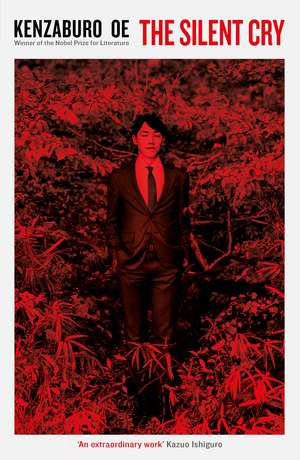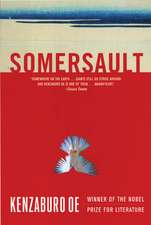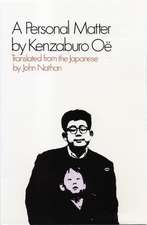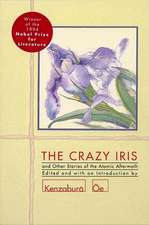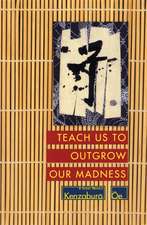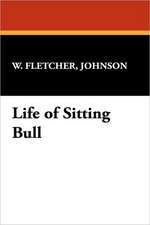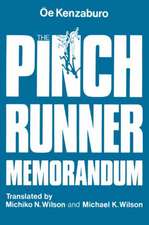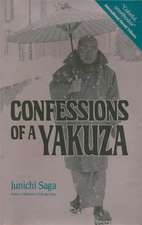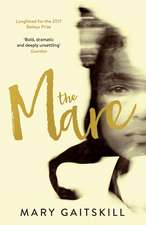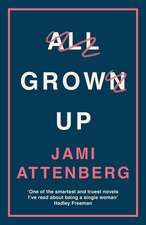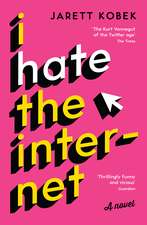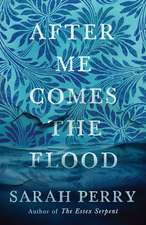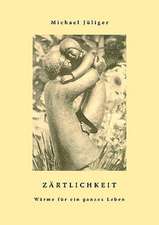The Silent Cry: Serpent's Tail Classics
Autor Kenzaburo Oe Traducere de John Besteren Limba Engleză Paperback – 15 iun 2016
| Toate formatele și edițiile | Preț | Express |
|---|---|---|
| Paperback (2) | 58.51 lei 3-5 săpt. | +21.05 lei 7-13 zile |
| Profile – 15 iun 2016 | 58.51 lei 3-5 săpt. | +21.05 lei 7-13 zile |
| Grove/Atlantic, Inc. – 8 noi 2016 | 113.42 lei 3-5 săpt. |
Din seria Serpent's Tail Classics
- 16%
 Preț: 58.34 lei
Preț: 58.34 lei - 14%
 Preț: 44.61 lei
Preț: 44.61 lei - 17%
 Preț: 57.56 lei
Preț: 57.56 lei - 17%
 Preț: 51.63 lei
Preț: 51.63 lei - 17%
 Preț: 57.81 lei
Preț: 57.81 lei - 15%
 Preț: 54.31 lei
Preț: 54.31 lei - 17%
 Preț: 52.40 lei
Preț: 52.40 lei - 16%
 Preț: 52.96 lei
Preț: 52.96 lei - 17%
 Preț: 51.77 lei
Preț: 51.77 lei - 15%
 Preț: 60.48 lei
Preț: 60.48 lei - 16%
 Preț: 58.59 lei
Preț: 58.59 lei - 17%
 Preț: 47.13 lei
Preț: 47.13 lei - 15%
 Preț: 54.10 lei
Preț: 54.10 lei - 15%
 Preț: 55.22 lei
Preț: 55.22 lei - 14%
 Preț: 55.53 lei
Preț: 55.53 lei - 16%
 Preț: 69.01 lei
Preț: 69.01 lei - 17%
 Preț: 52.70 lei
Preț: 52.70 lei - 15%
 Preț: 81.05 lei
Preț: 81.05 lei - 16%
 Preț: 68.72 lei
Preț: 68.72 lei - 17%
 Preț: 51.63 lei
Preț: 51.63 lei - 25%
 Preț: 51.86 lei
Preț: 51.86 lei - 16%
 Preț: 69.01 lei
Preț: 69.01 lei - 15%
 Preț: 54.63 lei
Preț: 54.63 lei - 15%
 Preț: 48.77 lei
Preț: 48.77 lei - 17%
 Preț: 51.58 lei
Preț: 51.58 lei - 18%
 Preț: 51.36 lei
Preț: 51.36 lei - 17%
 Preț: 51.91 lei
Preț: 51.91 lei -
 Preț: 78.14 lei
Preț: 78.14 lei - 17%
 Preț: 57.68 lei
Preț: 57.68 lei - 31%
 Preț: 47.80 lei
Preț: 47.80 lei
Preț: 58.51 lei
Preț vechi: 69.79 lei
-16% Nou
11.20€ • 11.69$ • 9.27£
Carte disponibilă
Livrare economică 14-28 martie
Livrare express 28 februarie-06 martie pentru 31.04 lei
Specificații
ISBN-10: 1781255652
Pagini: 288
Dimensiuni: 128 x 196 x 22 mm
Greutate: 0.24 kg
Ediția:Main - Classic edition
Editura: Profile
Colecția Serpent's Tail
Seria Serpent's Tail Classics
Locul publicării:London, United Kingdom
Notă biografică
Recenzii
An imagined world, where life and myth condense to form a disconcerting picture of the human predicament today ... at first glance [The Silent Cry] appears to concern an unsuccessful revolt, but fundamentally the novel deals with people's relationships with each other in a confusing world in which knowledge, passions, dreams, ambitions and attitudes merge into each other
Though thoroughly Japanese, Oe, in the range of hope and despair he covers, seems to me to have in him a touch of Dostoevsky
Somehow - and this is what gives his art such unquestionable stature - Oe manages to smuggle a comic thread in all this tragedy
A new pinnacle in postwar Japanese fiction
Oe piles copious and inventive misery onto his hero before allowing him enlightenment and redemption.
A formidable scholar and intellectual whose novels express the soul-searching of postwar Japan
Descriere
In Oe's masterpiece of the human condition and family psychology, estranged brothers Mitsusaburo and Takashi have long since left their family home in a remote forested valley on Shikoku, in the south of Japan: Mitsusaburo for work in Tokyo; his younger brother Takashi for the United States, to atone for his part in anti-American student protests. Takashi's return to Japan coincides with a local Korean supermarket magnate's offer to buy the brothers' ancestral storehouse, pitting the brothers against one another and dredging up family histories best forgotten.The Silent Cry is the most important Japanese novel of the post-war period and a strange, unsettling tale of how the call of blood and history echoes down the generations.
